On the Use and Abuse of Antiquity… in 18th-century life: Classical references and their subversion in the Age of Enlightenment
https://modern.huma-num.fr/cfp-on-the-use-and-abuse-of-antiquity-in-18th-century-life/
ERC ModERN – Sorbonne University – University of Chicago
International Institute of Research in Paris, University of Chicago John W. Boyer Center in Paris 22-23 May 2025
It is a well-established fact, frequently analysed by literary critics, that Greek and Roman Antiquity lies at the heart of 18th-century culture. The significance attributed to ancient authors in 18th-century collèges is often acknowledged, but references to classical figures in fact permeate all forms of the literary and visual arts, whether in the light-hearted forms of Baroque and Rococo or the austere severity of Neoclassicism. Scholars have often highlighted the idealisation of ancient socio-political models, which served as counterpoints to contemporary reflections and critiques, extending from the writings of philosophers to the proclamations and imagination of Revolutionary thinkers. The classical world was imbued with an exemplary value, conceived as an alternative framework through which to contemplate and categorise a frequently problematic present, or to advocate for political, social, and aesthetic reforms. Antiquity offered ideas and images that constituted a kind of second language through which the world of the Enlightenment could be reimagined.
However, any process of re-functionalisation and re-valorisation is inevitably accompanied by subversions, instrumentalization, and alterations. For a reference to be productive and applicable to a new and changing context, it must undergo modification that renders it relevant and exploitable, allowing it to bear meanings beyond the scope of its original formulation. In all cultural domains, ancient texts were either faithfully reproduced, critically commented upon, or openly reinterpreted according to the argumentative needs of writers, who, whether intentionally or not, projected their worldview and concerns onto these works. Precisely because Antiquity functioned as a ‘second language’, its words could only serve as instruments for the description and analysis of reality to the extent that they lost their original meaning and took on new ‘semantic’ valences, enabling them to convey content more attuned to the concerns of the time.
This colloquium aims to analyse and explore these deviations, shedding light on the highly productive dialectical play that takes place between an increasingly historicist and proto- scientific reception of the ancient world (with the emergence of disciplines such as archaeology, philology, etc.) and the still very free and fertile use of classical heritage, which was often employed with little constraint to support any and all ethical, political, or aesthetic arguments. Our goal is to identify the misunderstandings or ‘subverted’ reuses of classical texts, histories, and figures. Whether these fluctuations occur in the literal but reoriented reproduction of phrases, maxims, or passages from ancient texts, or more broadly in the reception of classical models in which new symbolic potentialities are detected, we wish to delve deeper into the qualities and purposes of these transformations of ancient material, analysing their pathways and dead ends, their distortions and their reconfigurations.
Why refer to Antiquity, and with what specific objectives or purposes? How were maxims, historical or philosophical texts, and the pantheon of ancient heroes and gods reinterpreted in the Age of Enlightenment, and how were they integrated into the contemporary cultural discourse? What demands for fidelity, and what modernising distortions were imposed upon Greek and Roman treatises and literature? How did any reappropriation of ancient discourse and its imagery ultimately prove suitable for the new expressive and ideological needs of the philosophes, and how could these same images also lead to their condemnation?
Practical Information
Proposals for papers, in French or English, consisting of 250 to 300 words, accompanied by a brief bio-bibliography including institutional affiliations, should be submitted by December 15, 2024, to the following two email addresses:
glenn.roe@sorbonne-universite.fr / dario.nicolosi.92@gmail.com
Acceptance decisions will be communicated to the authors by January 15, 2025.
Presentations, in French or English, must not exceed 30 minutes.
The conference organizers will cover travel and accommodation expenses for all invited speakers.
A publication of the conference proceedings is planned.
Colloque international
On the Use and Abuse of… Antiquity in 18th-century life: références classiques et détournements à l’Âge des Lumières
ERC ModERN – Sorbonne Université – Université de Chicago
International Institute of Research in Paris, University of Chicago John W. Boyer Center in Paris 22-23 mai 2025
Que l’Antiquité classique, grecque et latine, soit au centre de la culture du XVIIIe siècle est un fait avéré, qui a souvent été analysé par la critique littéraire. On rappelle régulièrement l’importance accordée aux auteurs anciens dans les collèges ; on remarque les références continues aux figures classiques dans toute forme d’art, littéraire ou visuel, qu’il s’agisse des formes légères du baroque et du rococo ou de la sévérité austère du néoclassicisme ; on insiste sur la récupération, souvent fantasmée, des exemples et des modèles socio-politiques antiques, qui fonctionnent en tant que repoussoirs pour des réflexions et des critiques ancrées dans la contemporanéité la plus pressante, depuis les écrits des philosophes jusqu’aux proclamations et à l’imaginaire des hommes de la Révolution. L’univers classique est investi d’une valeur exemplaire, envisagé comme un contre-modèle à travers lequel penser et catégoriser un présent souvent problématique, ou pour prôner des réformes politiques, sociales, esthétiques. L’Antiquité offre des idées et des images qui constituent une sorte de deuxième langue à travers laquelle imaginer le monde en devenir des Lumières.
Or, tout processus de refonctionnalisation et de revalorisation n’est jamais exempt de trahisons, d’instrumentalisations, d’altérations : pour qu’une référence soit productive et applicable à un nouveau contexte en mutation, elle doit faire l’objet de plusieurs modifications qui la rendent parlante et exploitable, afin d’être apte à se charger de significations dépassant le cadre originel de sa formulation. Dans tous les domaines culturels, les textes des anciens sont repris, fidèlement commentés ou ouvertement réinterprétés selon les exigences argumentatives d’écrivains qui, de manière plus ou moins volontaire, y projettent leur vision du monde et leurs préoccupations. Justement puisqu’il s’agit d’une « deuxième langue », l’Antiquité et ses mots ne s’offrent comme un instrument de description et d’analyse du réel que dans la mesure où ils perdent leur sens premier pour se prêter à un enrichissement « sémantique » qui les rend porteurs de contenus mieux accordés aux problématiques de l’époque.
Notre colloque se propose d’analyser et d’approfondir ces écarts, de mettre en lumière le jeu dialectique fructueux qui s’opère entre une réception du monde antique de plus en plus régie par des contraintes historicistes et proto-scientifiques (avec les premiers pas de disciplines telles que l’archéologie, la philologie, etc.), et une utilisation encore très libre et fertile de l’héritage classique, sollicité sans trop de contraintes pour soutenir tout argument, qu’il soit éthique, politique ou esthétique. Notre propos est d’identifier les incompréhensions ou les réemplois « détournés » des textes, des histoires et des figures classiques. Que ces fluctuations se produisent dans la reproduction littérale mais réorientée de formules, de sentences, de morceaux extraits des textes antiques ; ou qu’elles s’installent plus généralement dans la réception de modèles classiques, dans lesquels on décèle de nouvelles potentialités symboliques ; nous souhaitons approfondir les qualités et les finalités de ces transformations de la matière antique, analyser leurs chemins et leurs impasses, leurs entorses et leurs reconfigurations.
Pourquoi choisir de se référer à l’Antiquité, et avec quelles finalités ? Comment les sentences, les textes historiques ou philosophiques, les répertoires de héros et de dieux antiques sont-ils relus à l’âge des Lumières, et comment se retrouvent-ils engagés dans le discours culturel contemporain ? À quelles exigences de fidélité et à quels détours actualisants sont soumis les traités et la littérature grecs et romains ? Comment toute réappropriation de la parole antique et de son imaginaire s’avère-t-elle finalement convenable aux nouvelles exigences expressives et idéologiques des philosophes, et comment les mêmes images ont-elles pu, au contraire, se révéler fonctionnelles à leur condamnation ?
Informations pratiques
Les propositions de communication en français ou en anglais, de 250 à 300 mots, accompagnées d’une brève bio-bibliographie incluant les institutions de rattachement, sont à soumettre avant le 15 décembre 2024 aux deux adresses courriel suivantes :
glenn.roe@sorbonne-universite.fr / dario.nicolosi.92@gmail.com
Les décisions d’acceptation seront communiquées aux auteur·rice·s avant le 15 janvier 2025. Les communications, en français ou en anglais, ne pourront pas dépasser 30 minutes.
Les organisateurs du colloque prendront en charge les frais de déplacement et d’hébergement de tous les intervenants conviés.
Une publication des actes du colloque est envisagée.




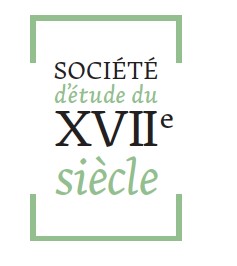 La Société d’étude du XVIIe siècle propose chaque année une aide à l’édition.
La Société d’étude du XVIIe siècle propose chaque année une aide à l’édition.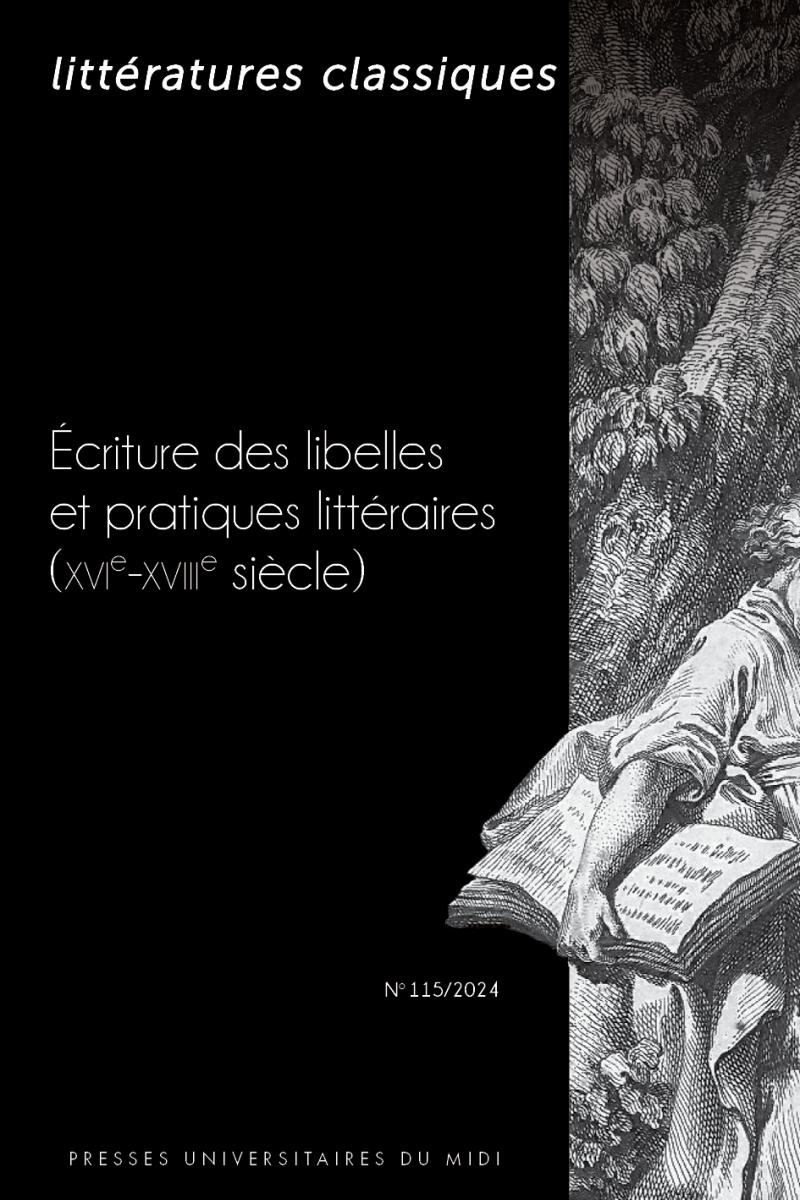 Littératures classiques, n° 115, Karine ABIVEN, Delphine AMSTUTZ, Alexandre GODERNIAUX et Adrienne PETIT (dir.), "Écriture des libelles et pratiques littéraire"
Littératures classiques, n° 115, Karine ABIVEN, Delphine AMSTUTZ, Alexandre GODERNIAUX et Adrienne PETIT (dir.), "Écriture des libelles et pratiques littéraire"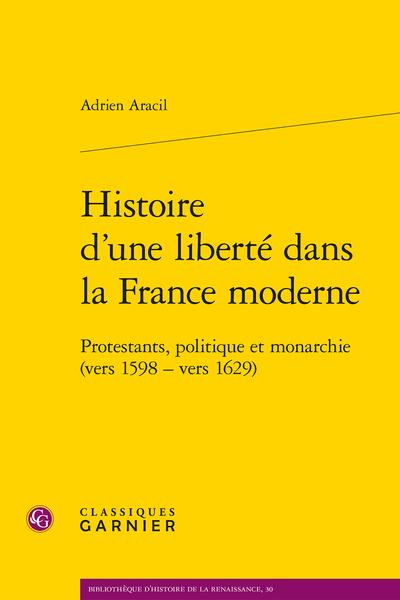 Adrien Aracil, Histoire d’une liberté dans la France moderne Protestants, politique et monarchie (vers 1598 – vers 1629), Paris, Classiques Garnier, 2025.
Adrien Aracil, Histoire d’une liberté dans la France moderne Protestants, politique et monarchie (vers 1598 – vers 1629), Paris, Classiques Garnier, 2025.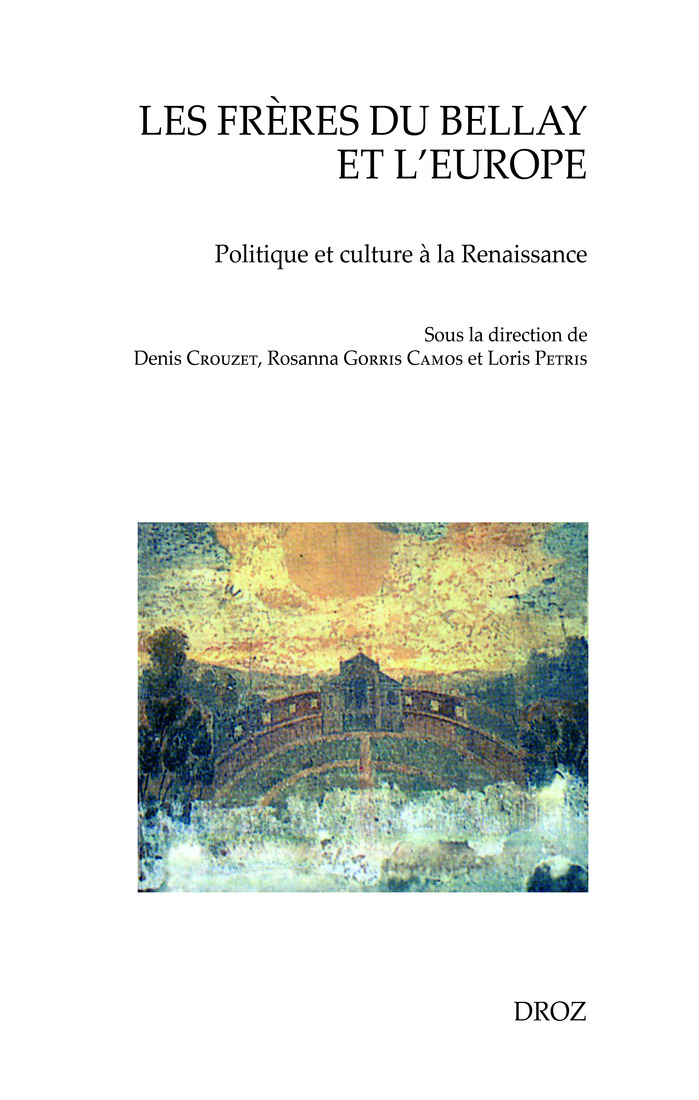 Les Frères Du Bellay et l'Europe Politique et culture à la Renaissance, dir. Denis CROUZET, Rosanna GORRIS CAMOS et Loris PETRIS, Genève, Droz, 2025.
Les Frères Du Bellay et l'Europe Politique et culture à la Renaissance, dir. Denis CROUZET, Rosanna GORRIS CAMOS et Loris PETRIS, Genève, Droz, 2025.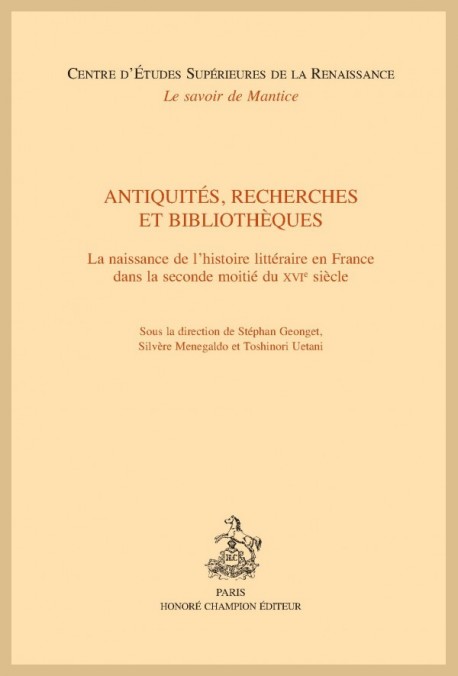 Antiquités, recherches et bibliothèques. La naissance de l'histoire littéraire en France dans la seconde moitié du XVIe siècle, dir. S. Geonget, S. Menegaldo et T. Uetani, Paris, H. Champion, 2025.
Antiquités, recherches et bibliothèques. La naissance de l'histoire littéraire en France dans la seconde moitié du XVIe siècle, dir. S. Geonget, S. Menegaldo et T. Uetani, Paris, H. Champion, 2025.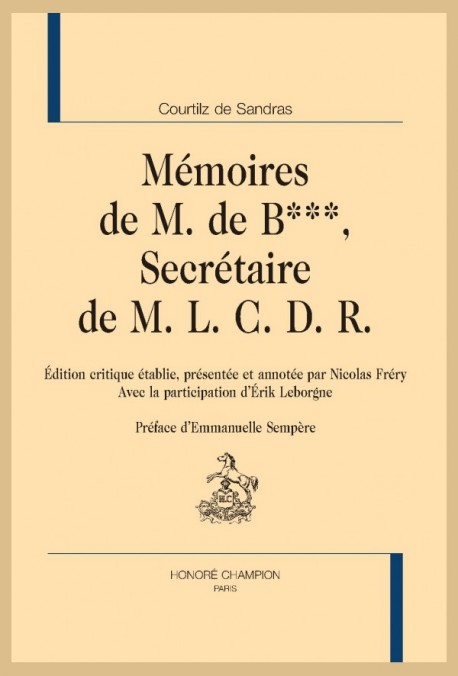 Courtilz De Sandras, Mémoires de M. de B***, secrétaire de M. L. C. D. R., éd. Nicolas Fréry, avec la participation d'Erik Leborgne, préface d'Emmanuelle Sempère, Paris, H. Champion, 2025.
Courtilz De Sandras, Mémoires de M. de B***, secrétaire de M. L. C. D. R., éd. Nicolas Fréry, avec la participation d'Erik Leborgne, préface d'Emmanuelle Sempère, Paris, H. Champion, 2025. Please join MSU's Medieval & Early Modern Studies Seminar for our first talk of the spring semester: Doctoral Candidate Ainan Liu (Princeton University), will be presenting his research in a presentation entitled, "A Chinese Princess in Paris: Racial and Religious Self-Fashioning in Seventeenth-Century France." Wednesday, January 24 at 2:30pm In person (SBUS 214) or over Zoom (register here):
Please join MSU's Medieval & Early Modern Studies Seminar for our first talk of the spring semester: Doctoral Candidate Ainan Liu (Princeton University), will be presenting his research in a presentation entitled, "A Chinese Princess in Paris: Racial and Religious Self-Fashioning in Seventeenth-Century France." Wednesday, January 24 at 2:30pm In person (SBUS 214) or over Zoom (register here):